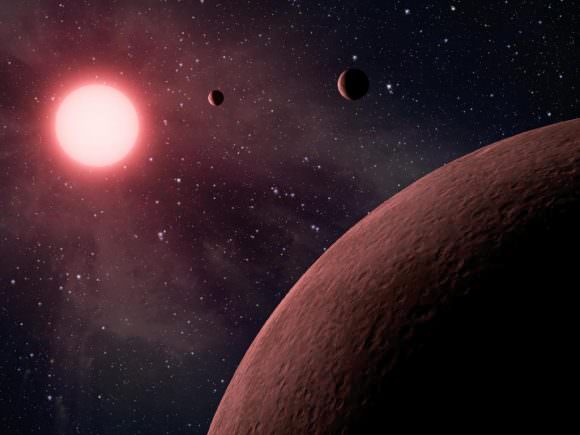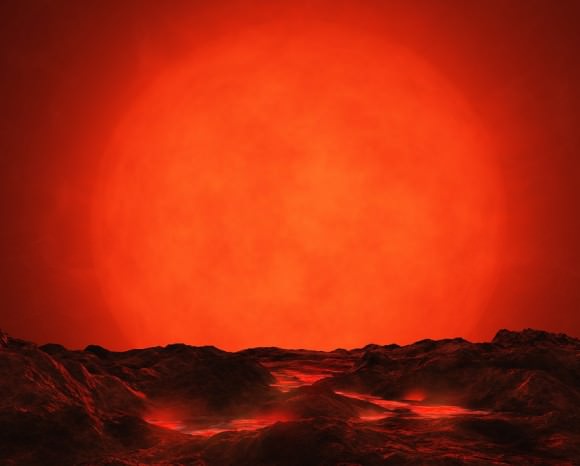In May of 2016, the IAU Executive Committee approved of the creation of a special task force known as the Working Group on Star Names (WGSN). Composed on an international group of experts in astronomy, astronomical history, and cultural astronomy, the purpose of the WGSN is to formalize the names of stars that have been used colloquially for centuries.
This has involved sorting through the texts and traditions of many of the world's cultures, seeking out unique names and standardizing their spelling. And after about six months, their labors have led to the creation of a new catalog of IAU star names, the first 227 of which were recently published on the IAU website.
This initiative grew out of the IAU's Division C - Education, Outreach and Heritage group, which is responsible for engaging the public in all matters of astronomy. Their overall purpose is to establish IAU guidelines for the proposal and adoption of star names, to search historical and cultural literature for them, to adopt unique names that have scientific and historical value, and to publish and disseminate official IAU star name catalogs.
In this respect, the WGSN is breaking with standard astronomical practice. For many years, astronomers have named the stars they have been responsible for studying using an alphanumerical designation. These designations are seen as immensely practical, since star catalogs typically contain thousands, millions or even billions of objects. If there's one thing the observable Universe has no shortage of, its stars!
However, many of these stars already have traditional names which may have fallen into disuse. The WGSN's job, therefore, is to find commonly-used, traditional names of stars and determine which ones shall be officially used. In addition to preserving humanity's astronomical heritage, this process is also intended to make sure that there is standardization in terms of naming and spelling, so as to prevent confusion.
What's more, with the discovery of exoplanets becoming a regular thing nowadays, the IAU hopes to engage the international astronomical community in naming these planets according to their stars traditional name (if they have one). As Eric Mamajek, the chair and organiser of the WGSN, explained their purpose:
"Since the IAU is already adopting names for exoplanets and their host stars, it has been seen as necessary to catalogue the names for stars in common use from the past, and to clarify which ones will be official from now on."

Artist's impression of a system of exoplanets orbiting a low mass, red dwarf star. Credit: NASA/JPL
For instance, it can certainly be said that HD 40307 g - an exoplanet candidate that orbits within the habitable zone of its K-type star some 42 light years away - has a pretty clunky name. But what if, upon searching through various historical sources, the WGSN found that this star was traditionally known as "mikiya" (eagle) to the Hausa people of northern Nigeria? Then this super-Earth could be named Mikiya g (or Mikiya Prime). Doesn't that sound cooler?
And this effort is hardly without precedent. As Mamajek explained, the IAU engaged in a very similar effort decades ago with respect to the constellations:
"A similar effort was conducted early in the history of the IAU, in the 1920s, when the 88 modern constellations were clarified from historical literature, and their boundaries, names, spellings, and abbreviations were delineated for common use in the international astronomical community. Many of these names are used today by astronomers for designations of variable stars, names for new dwarf galaxies and bright X-ray sources, and other astronomical objects."
Much like the constellations, the new star names are largely rooted in astronomical and cultural traditions of the Ancient Near East and Greece. Their names are rendered in Greek, Latin or Aabic, and have likely undergone little change since the Renaissance, a time where the production of star catalogs, atlases and globes experienced an explosion in growth.

Illustration of the red supergiant Betelgeuse, a traditionally-named star, as seen from a fictional orbiting world. © Digital Drew.
Others, however, are more recent in origin, having been discovered and named in the 19th or 20th centuries. The IAU is looking to locate as many ancient names as possible, then incorporate them into an official IAU-approved database with more modern stars. These databases will be made available for use by astronomers, navigators and the general public.
In accordance with WGSN guildines, shorter, one-word names are preferred, as are those that have their roots in astronomical, cultural or natural world heritage. The 227 names that have been released include 209 recently approved names by the WGSN, plus the 18 stars that the IAU Executive Committee Working Group for Public Naming of Planets and Planetary Satellites approved of in December 2015.
Among those names that were approved are Proxima Centauri (which is orbited by the closest exoplanet to Earth, Proxima b), as well as Rigil Kentaurus (the ancient name for Alpha Centauri), Algieba (Gamma-1 Leonis), Hamal (Alpha Arietis), and Muscida (Omicron Ursae Majoris).
This number is expected to grow, as the WGSN continues to revive ancient stellar names and add new ones that are suggested by the international astronomical community.
Further Reading: IAU






No comments:
Post a Comment